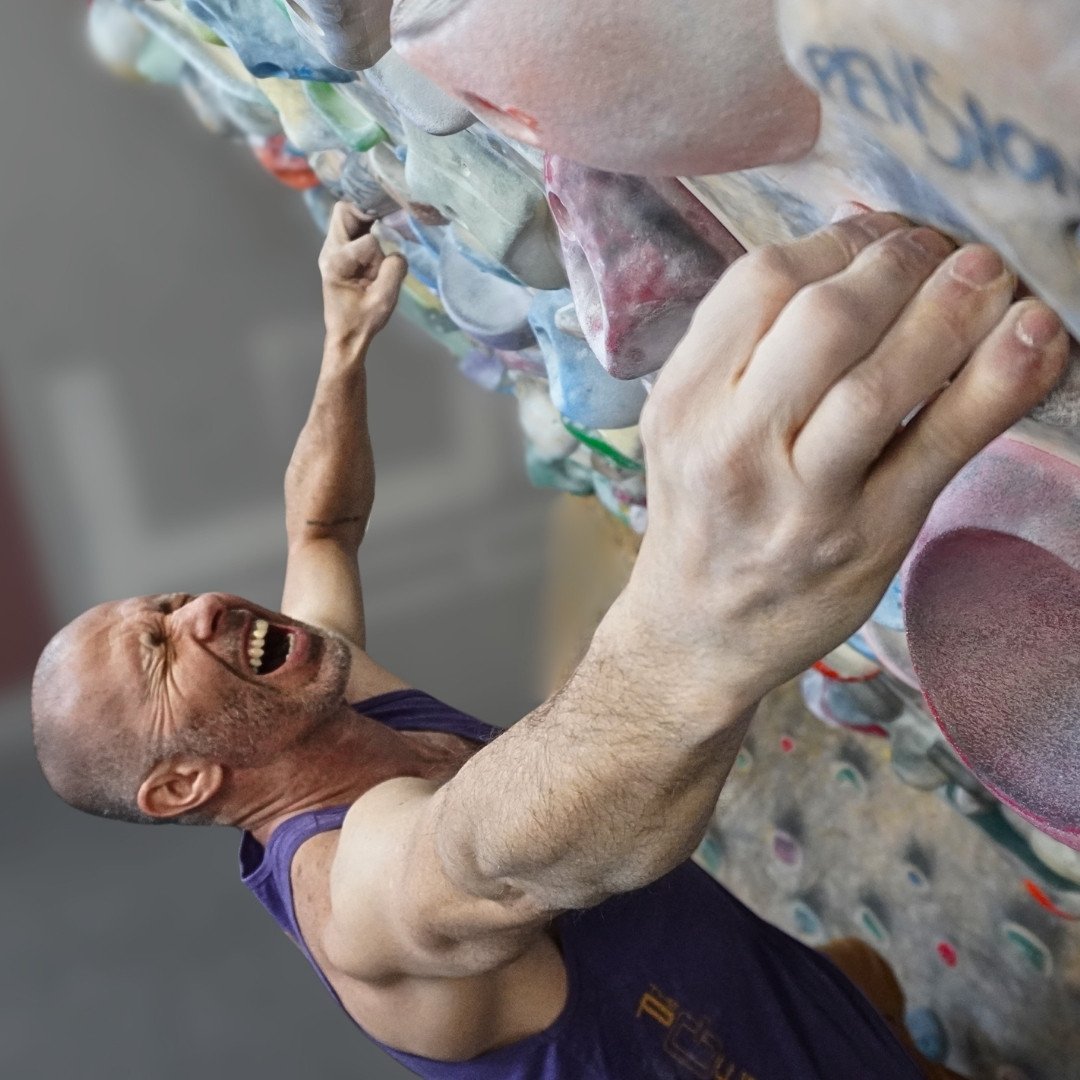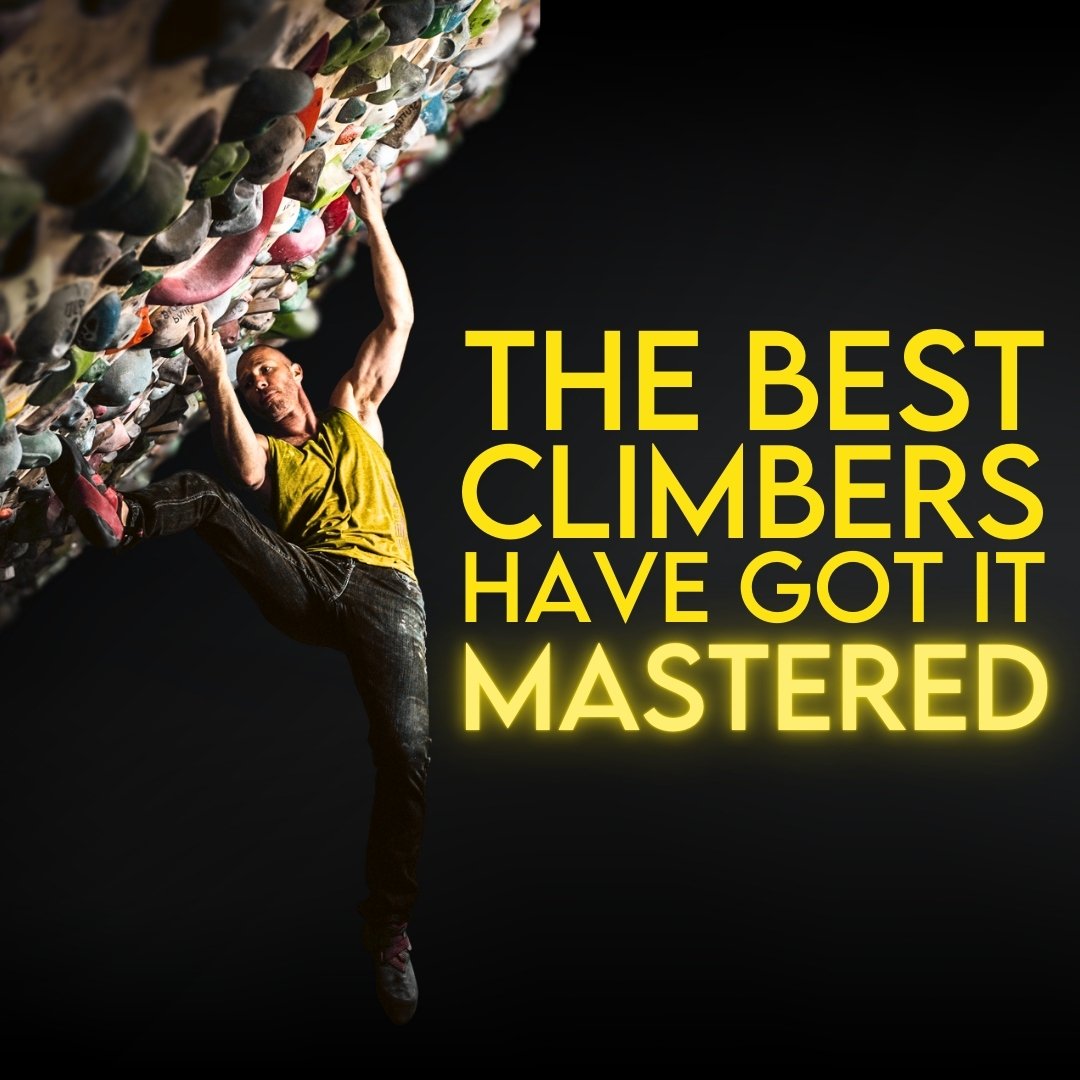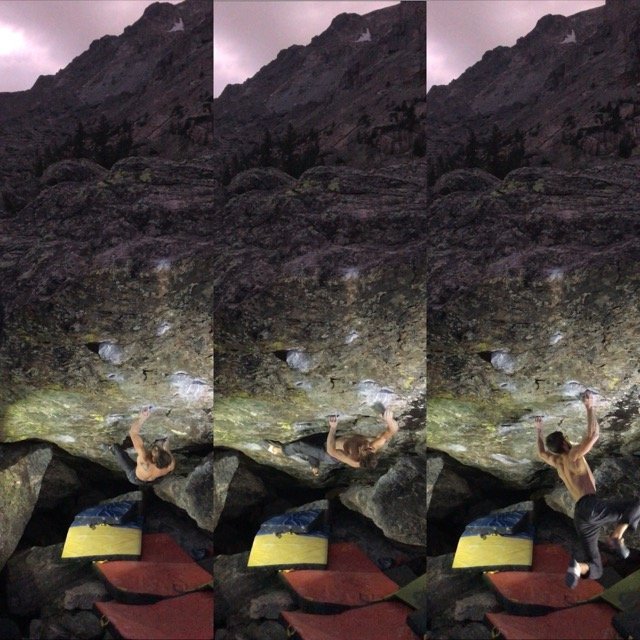If Nothing Else...
It’s winter time, which means performance season for some of you or training season for others. Either way, you’ve probably got some pretty big goals that you want to hit over these next few months. You should keep those goals, but while you do, I want you to embrace three words:
If nothing else…

As much as we all want to have big breakout seasons where we jump a few grades, what would really serve us best is just making a little bit of consistent progress year after year. Maybe the most understated way of getting better is to build fallback successes into your plan. Putting these things into action allow you to say, “If nothing else, at least I’ll get better from this one thing.”
Here are a few examples that I’ve seen people work into their climbing with great results:
If you want to be more flexible, start every session with 10 minutes of mobility work before you hop on the wall. It won’t make you jump a grade overnight, but a year of consistent mobility work before every session will have a lasting effect on your climbing. If nothing else, I’m going to be more flexible.
If you want to become more well-rounded as a climber, use your warm ups to build a better pyramid. If nothing else I’ll become a more skilled climber.
If you never hangboard, add in two hangs per session. If nothing else, my hands will get a little stronger.
Add 10-15 minutes of low intensity endurance work after your climbing sessions. If nothing else, my base fitness and recovery will be better.
Small additions like this are the easiest to overlook, but their simplicity leads to consistency. That consistency brings results, and those results help to fuel your motivation for the bigger wins. If nothing else, I’ll be better than I was.

There is a point at which continuing a tactical approach can slow your climbing gains.
Toe-hooking can seem more like sorcery than other techniques, but you’re probably just going about it the wrong way.
Implementing this one simple thing can result in big performance gains in your climbing, no matter what level you’re at.
Despite being constantly present and often the reason we fail, Rhythm is the most underrated of the Atomic Elements of Climbing Movement.
Long-time friends Nate and Ravioli Biceps discuss lessons they’ve pulled from video gaming that can help inform our climbing.
There’s A LOT of great information out there on how to climb harder. But it’s tough to sort through…
Short climbers are good at getting scrunchy, and tall climbers are good at climbing extended, right? Wrong.
One of the most common places things start to fall apart is at the very beginning of the move.
We know spending time on a finishing link is smart tactics for hard climbs. So why not apply the same concept to individual moves?
Learning when and how to compensate for a weakness is a skill. And skills need to be practiced.
Lowball boulders, while not as proud, can still teach us new movement, new ways to utilize tension, and force us into finding new techniques.
I never thought I’d be recommending this, but some of y’all should be putting less effort into becoming technically better climbers.
Training principles are important, but when they creep into performance, your climbing will suffer. Nearly every time.
We have become collectors of dots. But there’s one major thing that happens when we connect dots that is entirely lost in mass dot collection: critical thinking.
Do you really have terrible willpower? Or are you surrounded by distractions and obstacles?
You have a climbing trip coming up. The rock is different. The style is different. Your pre-trip time is short and the number of days you’ll be climbing, even shorter…
Giving artificially low grades to climbs increases their perceived value for our training and development. The more something is mis-graded the more we naturally want to prioritize it.
Discussion around grades can be so polarizing that many of us avoid the topic.
Climbing starts off as this self-feeding cycle that has you wishing you could climb seven days a week. What happens when this cycle stops bringing improvement though?
Use strength to leverage every other aspect of your climbing, not replace them.
If everything you do is a finger workout, then when do your hands get a chance to recover?






























There’s one often overlooked thing that has the power to positively – or negatively – affect every single day of climbing for the rest of your life.